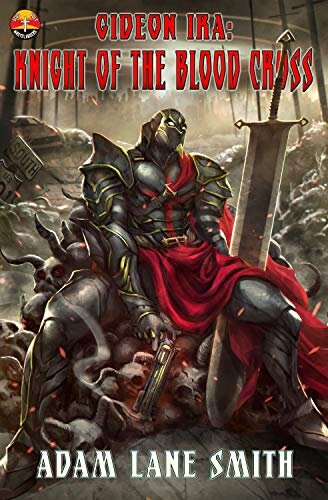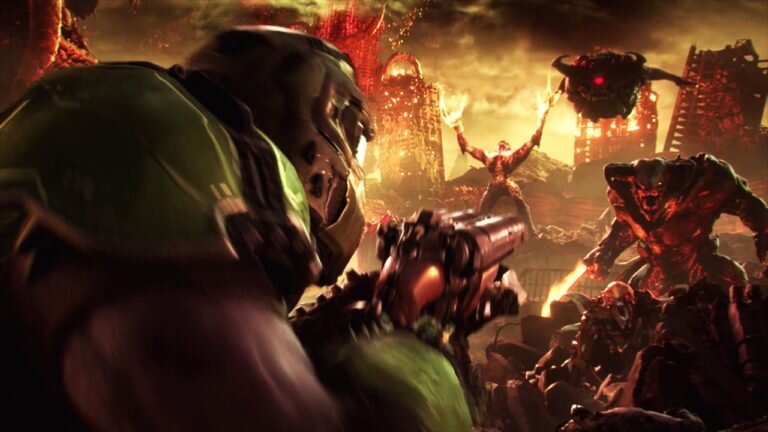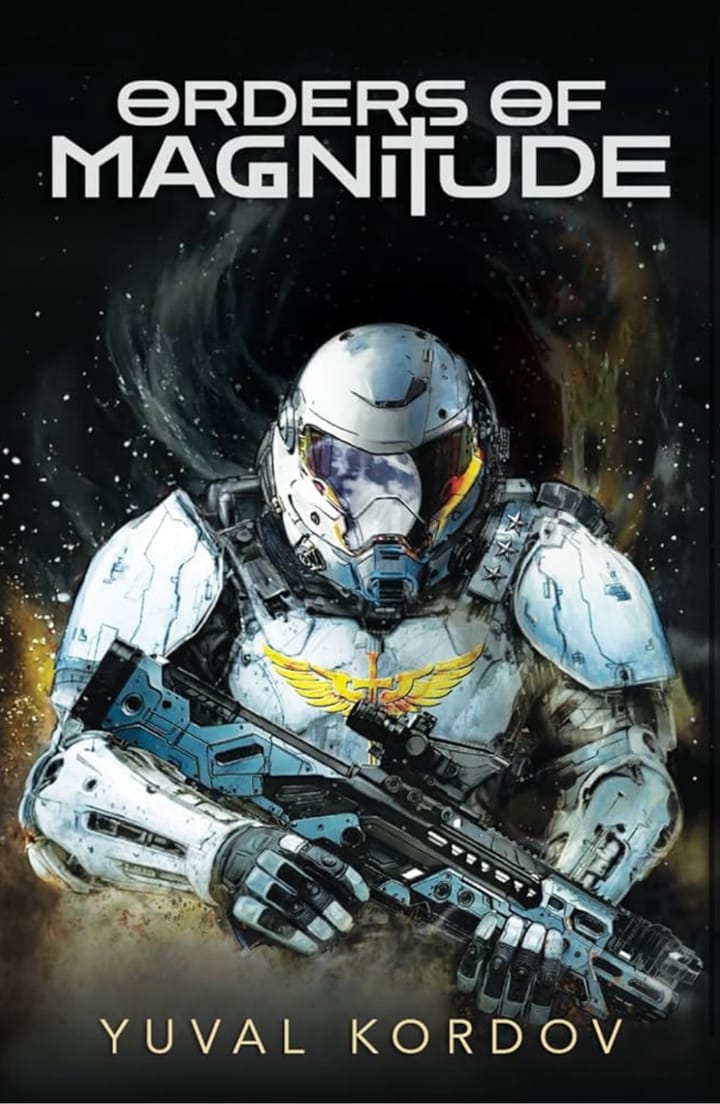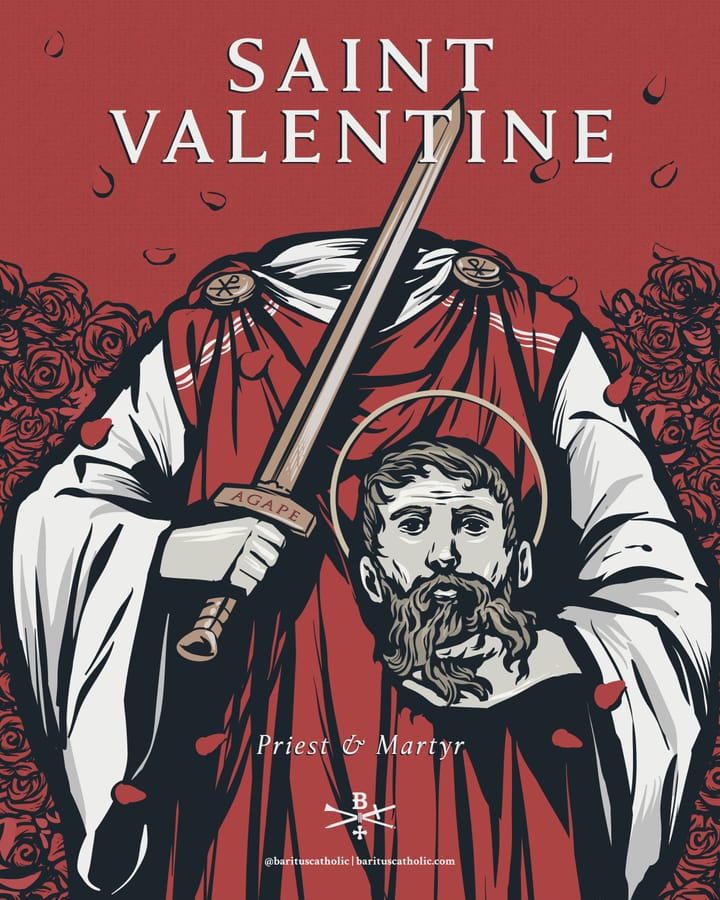Gideon Ira: Knight of the Blood Cross: Deus Vult Wastelanders Book 1 Review
Gideon Ira reminds me of Solomon Kane, if he had a repeating firearm and power armor. This assessment of Solomon could easily be written of Gideon:
A hunger in his soul drove him on and on, and urge to right all wrongs, protect all weaker things, avenge all crimes against right and justice. Wayward and restless as the wind, he was consistent in only one respect--he was true to his ideals of justice and right. Such was Solomon Kane.
Gideon Ira: Knight of the Blood Cross [Amazon link] is a post-apocalyptic adventure that will leave no demon unscathed.

Gideon Ira: Knight of the Blood Cross: Deus Vult Wastelanders Book 1 By Adam Lane Smith Amazon (October 4, 2019)
Unlike Solomon, Gideon does not need to restlessly wander the Earth looking for evil men to ease of their lives. There is an abundance of such, and far worse, close to home, and Gideon finds his purpose in defending his home from the horrors that roam the world.

Not Gideon, but a brother in spirit
We don’t know exactly what happened to the world. Since it has been several centuries since the world was “torn”, perhaps true knowledge of that event has passed from living memory. In my imagination, it was something like the precipitating event of the Doom series, a scientific investigation pushed far beyond the bounds of reason and sense in the pursuit of pure power.
However, the same civilization that presumably brought the world to ruin also left behind artifacts of great power that have been pressed into service by the defenders of humanity. Hence, Gideon and his brother Knights have the ability to not only combat wicked men, but also the foul demons and other hellspawn that were unleashed in the now legendary cataclysm.
And Gideon does this in abundance. In the opening chapter, Gideon does battle with a Pride demon, three times the height of a man and covered in insect-like armor. Later he massacres leathery flying monsters and animated skeletons by the dozens. Unfortunately, as natives of Hell, these things cannot truly be killed, only inconveniently discorporated.
A key difference in the world of Doom and Gideon’s world is that ordinary people are able to live out their lives, protected not only by Gideon’s fierceness, but also by holy places and holy signs. The unclean things cannot abide a cross, or the touch of a sacramental like holy water. Thus life can in some respects go on, for those who seek the protection of the Church.
While there are some fascinating hints that the devil-worshipers who live in the blasted wastelands and the faithful protected by careful maintenance of blessed objects are locked in a kind of economic interdependence, this is primarily an adventure novel, and not hard sci-fi or fantasy with rivets. Thus, we get a quick line that the flying transports the Knights use are fueled by demon blood, and a deduction that the population of the demon-haunted regions could only be sustained by defection and fed by theft, since they neither toil nor spin.
However, the real meat of the novel consists not in the derring-do of Gideon, but in the Solzhenitsyn like realization that the real border between good and evil lies not in the boundary formation made with crosses and blessed paint, but within each man’s heart. In a world where demons roam the Earth, and holy water and crosses repel them, you might be tempted to think that the petty arguments we have about religion would fall by the wayside.
In a way, that is correct, insofar as the Catholic Church dominates Gideon’s world. However, it doesn’t really change the fundamental relationship of men to truth, or the way that temptation works. What has changed is that in cases where you might suspect demonic influence, it is now overt rather than covert. The demons just shout the things that they might have previously whispered to you in a dream. In our world, dark conspiracy theories claim that worshiping the devil is a means to worldly power. In Gideon’s world, you really do get magical powers from kneeling before the demons, and all the fun that comes from seeing your enemies driven before you, and hearing the lamentations of their women.
On the other hand, we have very real evidence of the power of God. Those demons fear holy things, and are burned by the sacramental holy water that priests can produce in nearly unlimited quantities as long as they have a source to draw from. In a curious reversal to the unlife of the hellspawn, an embodied demon can steal your life by force, but not your soul. The demons must rely on the old-fashioned methods to do that.
Thus, faith, hope, and charity are critical virtues to maintain in Gideon’s world, just as much in ours. Gideon himself, as stalwart as he is, primarily draws his strength from the theological virtues. For that, plus a fun, finely crafted story, I can heartily recommend this for anyone who likes pulp adventure.



Comments ()